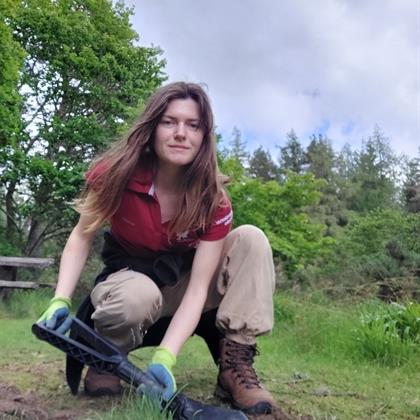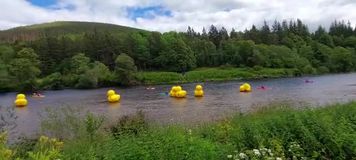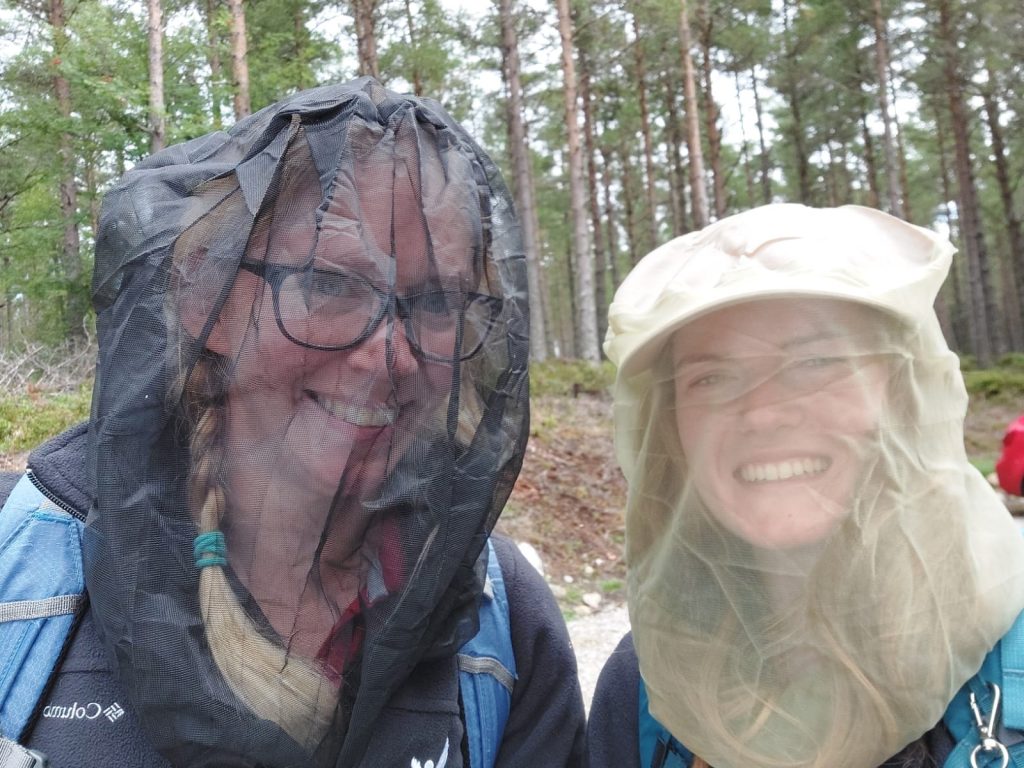What it means to be a Seasonal Ranger
Towards the end of last year, Seasonal Ranger Fiona Brewis shared her experience working in the Cairngorms National Park. Interested in playing your part to protect this special place? We now have some exciting opportunities for Seasonal Rangers to join our team in the Angus Glens, Badenoch & Strathspey and Deeside.
It was the day of the Ballater duck race and I sashayed along the river bank, squeezing between crowds of people and snooping for litter with my trusty picker. I got chatting to a couple about being a ranger.
“And what do you do for your full-time job?”
“This is my full-time job.”
Rangering is a funny profession which varies wildly between countries. A ranger in Zimbabwe may have paramilitary powers to prevent poaching. A ranger in a Canadian forest may be half person, half chainsaw. A ranger in Poland may be a wildlife guru, monitoring the tracks of bear, wolves, and bison. A ranger in Scotland may be patrolling woodland to deter people from disturbing endangered capercaillie, or litter-picking the local community paths to limit plastic pollution in the countryside.
It is our collective goal in the ranger team to protect the delicate ecosystems of our natural environment whilst also encouraging people to engage with nature. In the world of nature conservation, there are debates on how to strike the balance between managing land for the benefit of nature and managing land for the benefit of people. Unfortunately, people create disturbance in wild areas; we bring floofy dogs who bounce away to chase ground-nesting birds, we trample vegetation to create paths, we burn the ground with BBQs and campfires, we litter, we party, we poop.
As rangers, we hope to minimise the negative impacts created by a small minority of irresponsible visitors, so that the vast majority of responsible visitors can enjoy accessing the local nature reserves.
I became a ranger almost accidentally, after my place on a teaching course was cancelled during the Covid-19 pandemic. During lockdown as I completed my Masters dissertation – “Rewilding School: Educators’ Experiences of Environmental Education” – I started learning to identify trees and wildflowers from a cute Collins pocket guide. I applied for a forestry internship and was surprised to be offered the job. After two hardy winter tree-planting seasons and a summer spent splashing about in drainage ditches looking for mussels, I decided that this was the life for me. Except that I’d rather be back in my bonnie homeland swanning about in rivers less obviously polluted with sewage and industrial run-off.
So up to the Cairngorms for a season with the Cairngorms National Park Authority! I have seen a plethora of wildlife for the first time: a cautious slowworm, mating adders, a cormorant gulping an eel, an osprey feeding chicks, sexy sub-arctic alpine flora, and a group of lads floating down the sunny River Dee on a slowly deflating kayak, – “have you got any Duct tape?” – beers in hand. I have been offered cake, a cup of tea and sausage rolls by kind campers. I have learned how to subtly tell someone off in a way which makes them think you are helping them – “it’s a good job we got to your campfire before the fire service did!” – and how to entice visitors to a stall about responsible toileting by dancing around in an emoji poo costume.
Last weekend on Junior Ranger camp I hiked with a bunch of tired but enthusiastic Junior Rangers up their first Munro. Reflecting on the walk later, one of them wrote, “I’m grateful for the beautiful nature around me.” That’s why it’s great to be a ranger.
Find out more about our Seasonal Ranger vacancies and apply now at https://cairngorms.co.uk/working-together/authority/working-with-us/jobs/.


